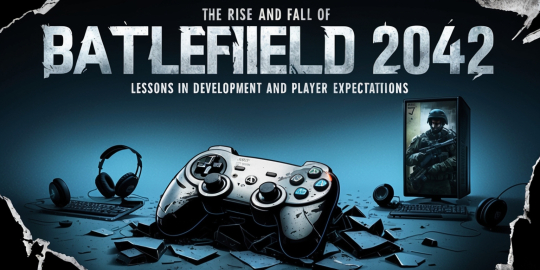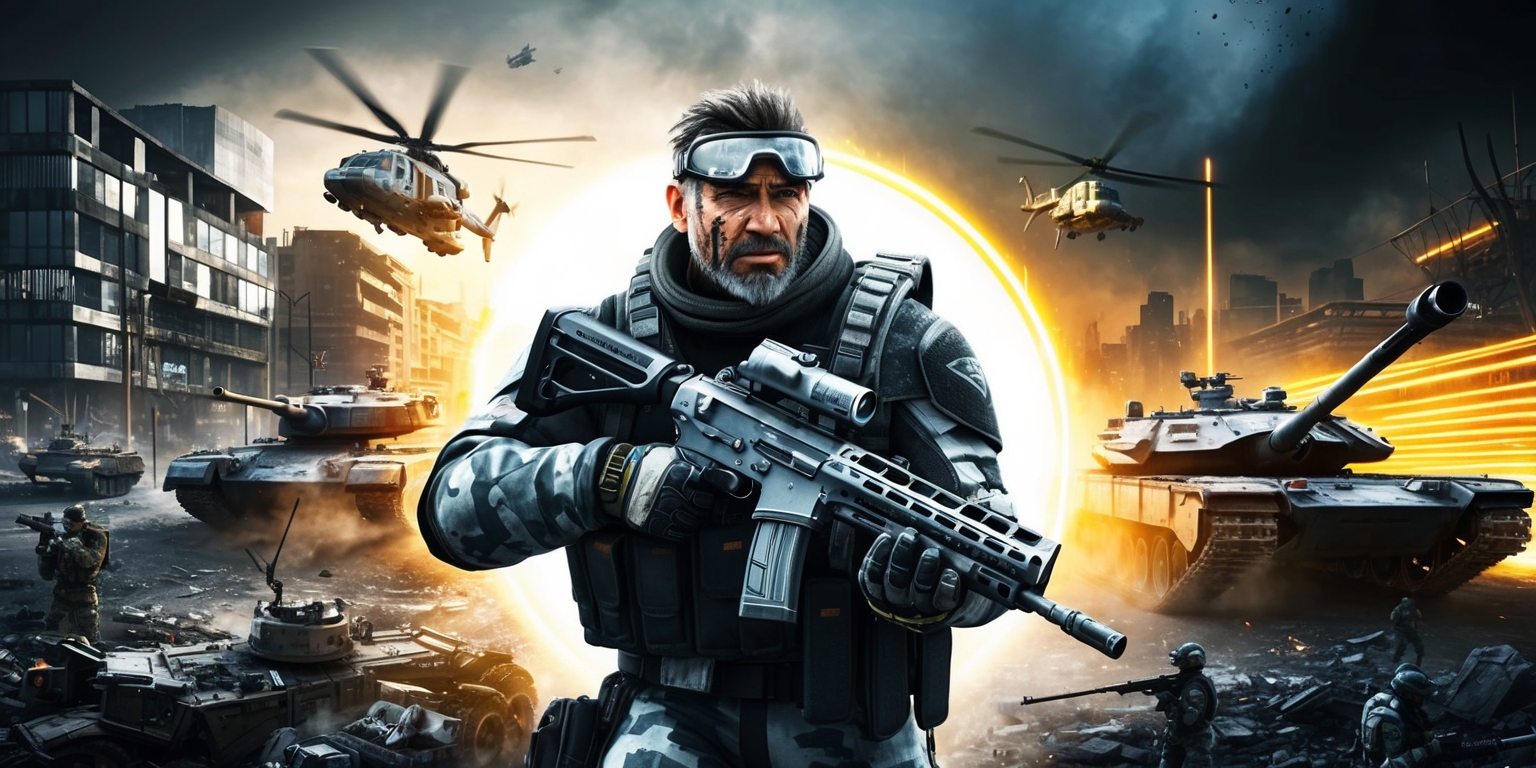
In the rapidly changing landscape of first-person shooters (FPS), expectations run high. Gamers fervently anticipate new entries in their favorite franchises, especially after a previous release fails to meet their enthusiastic hopes. The latest iteration of the Battlefield series was celebrated with excitement, yet it has ultimately fallen short of expectations, leaving fans once again searching for a worthy successor. This piece reflects on the journey of Battlefield 2042—from its extensive development phase to its troubled launch—and examines the implications for this storied franchise in the competitive FPS landscape.
Craving a Comeback
Following the lackluster reception of Battlefield V, gamers were eager for a revitalization of the Battlefield series. Hopes were pinned on Battlefield 2042, expected to recapture the magic that had defined early entries. Yet, what unfolded proved to be an experience marred by disappointment rather than triumph.
Development Timeline Insights
The journey to Battlefield 2042 began in the summer of 2020. With merely 15 months allocated for development, it became evident that this time frame was insufficient to create a truly groundbreaking experience in an era where video game production demands have escalated significantly.
Comparative Frustration
Contrast this rushed development with competitors in the military shooter genre, like the Call of Duty franchise. For instance, Modern Warfare's celebrated remake benefited from three years of meticulous development, yielding a product that resonated well with players. Meanwhile, Battlefield 2042 found itself scrambling as fans attached their aspirations to future titles after an underwhelming experience.
Lessons from Modern Warfare 3

Interestingly, Battlefield 2042 shares an unfortunate parallel with Modern Warfare 3, another highly anticipated release that failed to deliver. Developed within a compact window of just 16 months, it too left players dissatisfied, reinforcing the notion that rushed timelines often compromise quality.
A Legacy at Risk
With nearly 100 million copies of Battlefield games sold, Electronic Arts recognizes the potential risks of alienating their dedicated fanbase. Maintaining loyalty and enthusiasm is critical, especially as player expectations continue to evolve with each new release.
The Evolution of Game Development
The realm of game creation has undergone a remarkable evolution over the years. Crafting a video game today necessitates not just technical expertise but also an acute awareness of player preferences and industry standards. Developers must attend to minute details, akin to creating an intricate dish, ensuring that every element meets fan expectations.
Challenges of Balancing Gameplay
Game balance is another critical aspect developers must grapple with in modern gaming. They must craft an experience that is engaging and rewarding while also addressing concerns about in-game cheating and exploits that can mar the experience for honest players.
Trial and Error in Creation
An essential phase in game development is the process of trial and error. Developers cannot simply fabricate a game and hope for the best; they must iterate and refine. The aim is to deliver a polished product that players can delve into and enjoy right from launch.
Mobile Gaming Hurdles
Mobile gaming too has seen its fair share of frustrations. While development processes may be quicker than their console and PC counterparts, the mobile version of Battlefield still fell flat, highlighting how crucial it is to maintain quality regardless of the platform.
Pre-Production Considerations
Before any game enters the production phase, it must undergo extensive pre-production. This crucial stage involves concept development, story crafting, and creating prototypes. Depending on the game's complexity, this can take months and greatly impacts the eventual quality of the game.
The Post-Launch Reality
Upon reflection, it is possible that Battlefield 2042 could have benefitted from a more rigorous pre-production period. Perhaps if developers had invested more time and resources before launching, the game might have avoided many of the criticisms it faced.
Pandemic Impact on Development
Electronic Arts pointed to the challenges posed by the COVID-19 pandemic, suggesting that remote work significantly hampered the game's development. With many workplaces now returning to normal, fans hope that this evolution will positively influence future releases.
Looking to the Future
The question lingers—would a more extended timeline have led to a different Battlefield 2042? Would fans still be eagerly anticipating further entries within the series instead of wrestling with disappointment? The prospect of future improvements is tantalizing, but players are left wondering if meaningful changes will materialize.
Engagement with the Community
While the development teams must shoulder some of the responsibility, fan feedback and community engagement also are instrumental in influencing the development of the franchise. EA needs to ensure they listen to player criticisms to refine and enhance upcoming titles.
The Call for Change
As the FPS landscape becomes increasingly competitive, maintaining relevance requires more than just nostalgia. Developers must take bold steps forward to innovate, refine, and excel in creating immersive experiences that connect with today’s gamers on multiple levels.
A Hopeful Horizon
The Battlefield franchise has a rich history filled with memorable moments and gameplay experiences. By learning from past mistakes and prioritizing quality over speed in development, there is potential for a revival that honors the franchise's legacy while bringing fresh excitement to fans eager for the next big title.
Final Thoughts
As we look forward to the upcoming phase in the Battlefield saga, one cannot help but feel a blend of hope and skepticism. The desire for greatness remains strong among the gaming community, and it is essential for developers to harness this passion, ensuring that the next installment truly resonates with the audience. As discussions continue on forums and social media, it is clear that player input could be pivotal in shaping the future direction of this beloved series.